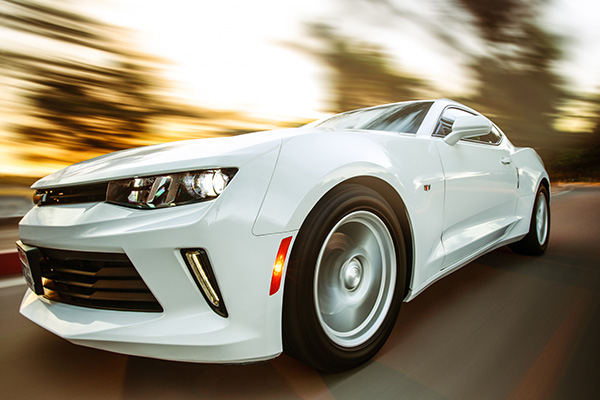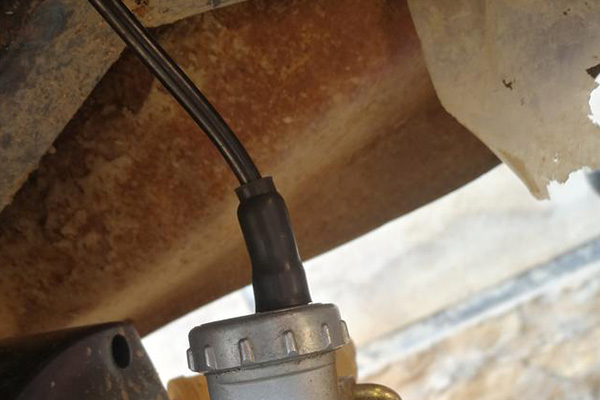Home > Industry News > Detail
How long do brake lines generally last? Your Brake Cables Might Be Rusting and Corroding
Date: 2023-02-13
Viewer:
How long do brake lines generally last? Most new cars and trucks come with stainless steel brake lines, which are expected to last seven to fifteen years before needing replacement. It is one of the most durable parts in your vehicle and is considered a lifetime part.
Steel Brake Cables Are Prone to Rust and Corrosion Although your brake cables are made of stainless steel—designed to avoid rust—they still contain a lot of iron, which can oxidize over time. The oxidation process is accelerated when steel is subjected to common weather and road conditions such as rain, snow and surf. Driving more miles results in a higher rate of exposure, which means brake lines on commercial trucks and cars won't last as long as the grocery-buyer counterparts. If you drive in an area known for rain, snow, or scenic ocean views, brake line life will be further reduced.
Road Salt and Salty Air Accelerate Brake Line Failure While water may cause brake line corrosion more generally, road salt used to control snow and ice is the greatest threat to your safety. The salt reacts with the other metals in the stainless steel alloy, leaving the iron behind. Iron will eventually oxidize and rust. The same idea applies to a car parked in a seaside residence without the protection of a garage. A vehicle operating in a salty environment can experience brake line failure in as little as five years. Taking your vehicle through the wash on a regular basis and keeping an eye on the undercarriage will keep the salt from scabbing the lines.
Brake lines last longest in the desert Maybe you're one of the lucky ones who live in arid areas like Arizona, parts of Texas, New Mexico, and California. Your brake lines will likely last the life of your car, as steel doesn't mind extreme heat, direct sunlight, and sandy roads. You will need to change the brake hoses more often and change the brake fluid as it degrades at high temperatures.
Copper Nickel Brake Lines Resist Damage From Salt If you run a company fleet in the northern part of the country or along one of the coasts, you may want to invest in Carlson nickel copper brake lines. While copper is soft and will tarnish over time, nickel gives it greater strength and hinders the green oxidation process. As long as you avoid any serious impacts, replacement nickel copper brake lines should last the life of your vehicle. The salt does not react with copper or nickel, eliminating the cause of corrosion.
PVF coated brake lines offer you a good compromise between protection price and performance. PVF is coated on standard stainless steel and will not react with road salt or water. PVF can dry out, crack or flake, but when you upgrade to PVF, you can expect a few years more life to your brake lines.
Whether you choose traditional stainless steel, premium nickel copper or PVF coated brake lines, when the job is done your ride will be ready for more miles on the road.
Steel Brake Cables Are Prone to Rust and Corrosion Although your brake cables are made of stainless steel—designed to avoid rust—they still contain a lot of iron, which can oxidize over time. The oxidation process is accelerated when steel is subjected to common weather and road conditions such as rain, snow and surf. Driving more miles results in a higher rate of exposure, which means brake lines on commercial trucks and cars won't last as long as the grocery-buyer counterparts. If you drive in an area known for rain, snow, or scenic ocean views, brake line life will be further reduced.
Road Salt and Salty Air Accelerate Brake Line Failure While water may cause brake line corrosion more generally, road salt used to control snow and ice is the greatest threat to your safety. The salt reacts with the other metals in the stainless steel alloy, leaving the iron behind. Iron will eventually oxidize and rust. The same idea applies to a car parked in a seaside residence without the protection of a garage. A vehicle operating in a salty environment can experience brake line failure in as little as five years. Taking your vehicle through the wash on a regular basis and keeping an eye on the undercarriage will keep the salt from scabbing the lines.
Brake lines last longest in the desert Maybe you're one of the lucky ones who live in arid areas like Arizona, parts of Texas, New Mexico, and California. Your brake lines will likely last the life of your car, as steel doesn't mind extreme heat, direct sunlight, and sandy roads. You will need to change the brake hoses more often and change the brake fluid as it degrades at high temperatures.
Copper Nickel Brake Lines Resist Damage From Salt If you run a company fleet in the northern part of the country or along one of the coasts, you may want to invest in Carlson nickel copper brake lines. While copper is soft and will tarnish over time, nickel gives it greater strength and hinders the green oxidation process. As long as you avoid any serious impacts, replacement nickel copper brake lines should last the life of your vehicle. The salt does not react with copper or nickel, eliminating the cause of corrosion.
PVF coated brake lines offer you a good compromise between protection price and performance. PVF is coated on standard stainless steel and will not react with road salt or water. PVF can dry out, crack or flake, but when you upgrade to PVF, you can expect a few years more life to your brake lines.
Whether you choose traditional stainless steel, premium nickel copper or PVF coated brake lines, when the job is done your ride will be ready for more miles on the road.















